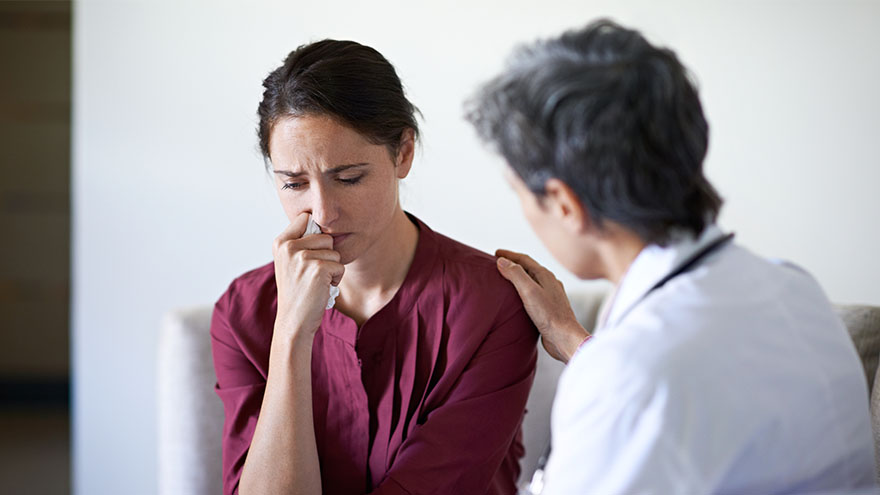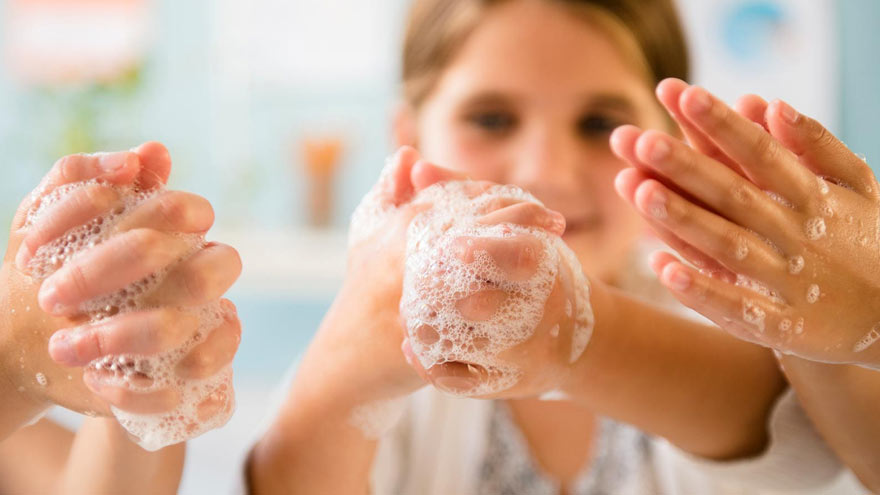Search
Results for 'forms'
Clear-
Grief and Bereavement Resources
Feelings of grief can take on many forms and can occur in reaction to many situations, including the death of a loved one or a medical diagnosis for yourself or someone close to you. It is important to remember that this reaction is entirely natural, and many people who experience grief find outside help to be a valuable part of the healing process. Below is a list of both local and national grief and bereavement resources for all ages and specificities. If you or someone you know is experiencing grief, the trained professionals below are here to help. Solace Tree Support groups for children and teens (ages 3 to 18), young adults and their family members. For more information visits solacetree.org/grief-programs or call 775-324-7723. Healing Minds Counseling services for those coping with the loss of a loved one or major life change. For more information visit healingminds.com/grief-counseling-reno-nv or call 775-448-9760. Circle of Life Hospice Support groups open to the community held the first and third Tuesday of every month. Fore more information visits colhospice.com/bereavement-and-spiritual-care or call 775-827-2298. Summit View Hospice Grief and bereavement support open to the community-groups, memorials and by mail. For more information visit summitviewhospice.com or call 775-636-9598. The Compassionate Friends Monthly support group on the second Monday of each month for families after a child dies. Fore more information visit facebook.com/TheCompassionateFriendsofReno, compassionatefriends.org or call 775-750-7005. Healing for Survivors of Suicide Links and resources for those who have lost a loved one to suicide. For more information visit survivingsuicide.com GriefShare Grief recovery support groups meeting weekly both in-person and online with options in Reno/Sparks, Carson City and rural cities. For more information www.griefshare.org National Alliance for Grieving Children Resources for parents and caregivers to help children navigate the challenges of bereavement and grow into healthy adults. For more information visit nacg.org/resources-and-support/ Mourning Hope Grief Center Grief support groups, counseling, resources and COVID-19 support for children, adults and families before and after a death loss. For more information visit mourninghope.org Crisis Support Services of Nevada 24/7, free, confidential and caring support to people in crisis across Nevada and the U.S. For more information visit cssnv.org, call 775-784-8090 or text CARE to 839863 National Alliance on Mental Illness-Warmline A stigma-free, non-crisis phone service you can call or text that is staffed by trained peers in recovery. For more information visit namiwesternnevada.org/resources/ or call 775-241-4212. Vitas Healthcare Grief and bereavement resources and support groups both virtual and phone-in. For more information visit vitas.com/family-and-caregiver-support or call 866-489-0583. St. Mary’s - Hospice We Promise Resources on grief for all groups including children to adults, trauma, caregivers and more. For more information visit hospicewepromise.com/topics/grief or call 775-525-6700. Mountain View Mortuary Grief support and tools available to assist you in your healing journey including “365 Days of Healing” email list for daily support and comfort. For more information visit mountainviewmortuary.net/resources/grief-support or call 775-788-2199 Sesame Street – Helping Kids Grieve Discover games, videos and more on topics important to you and your child. For more information visit sesamestreetincommunities.org/topics/grie Trauma Intervention Program-Northern NV A national non-profit organization of volunteers dedicated to ensuring those emotionally traumatized receive assistance. For more information visit tipnnv.org/about-tip/resources Pregnancy & Infant Loss Support Organization A non-profit organization dedicated to the support of families who have lost a baby through miscarriage, stillbirth or neonatal death. For more information visit pilsos.org Caring Info A program of the National Hospice & Palliative Care Organization providing free resources to help people make decisions about end-of-life. For more information visit nhpco.org/patients-and-caregivers/
-
Spiritual Care
Spiritual Care for You and Your Loved Ones Well-balanced healing involves caring for the whole person – body, mind, and spirit. Renown Health's Spiritual Care team provides compassionate care and support for you and your family, always respecting your spiritual preferences. How we support you: Religious or spiritual support End-of-life care Guided family conferences Support groups Chaplain visits A quiet space for prayer Multi-faith services Blessings, prayers or sacraments at the bedside
-
Avoid Viruses, Colds and the Flu With Expert Hand-Washing Advice
Can you really avoid colds, flu and viruses with simple hand-washing? Amy McCombs, Renown’s director of Infection Prevention, shares how to stay healthy with this very simple practice. Shaking hands, turning doorknobs, drafting emails — all regular activities of everyday life. But whenever you touch another person, or touch an object another person has touched, you’re collecting their germs on your hands. And touching your own mouth, eyes or nose also exposes you to whatever germs you’ve collected. That makes hand-washing the most important step you can take to prevent illness and disease. And while that may seem like an obvious reminder, studies have found that 85 percent of people do not practice proper hand hygiene. We asked Amy McCombs, Renown’s director of Infection Prevention, to give us some hand-washing tips for a safer, healthier life. So what are the correct hand-washing steps? Wash for at least 20 seconds. The biggest thing to remember is to wash for at least 20 seconds with soap and water. A good rule to make sure you’re washing long enough is to sing “Happy Birthday” twice through. Get a good lather of soap going. It’s also important to get a nice lather of soap and make sure you wash between your finger, both the tops and palms of your hands and your nail beds. And if you wear jewelry, you need to remove it or make sure you get lather and friction underneath. Then rinse completely and dry. Is there a wrong way to wash your hands, or is it more about making sure you do it the right way? Honestly, it’s a little bit of both. There is a wrong way since 85 percent of us don’t wash correctly. This could be for a variety of reasons. It could be because you don’t wash long enough, don’t get in between your fingers, don’t clean your palms or don’t clean the tops of your hands. How frequently should we wash our hands? Are there certain times where it is more important than others? As most of us are taught as kids, you need to wash your hands before you eat or prepare foods, after you touch raw produce and meat and after you use the restroom. You should also wash your hands after sneezing or coughing, touching your eyes, nose and mouth or coming in contact with someone who is sick. Do you recommend hand-washing over hand sanitizer? Ideally, you should wash your hands instead of using hand sanitizer, but if sanitizer is all you have, then use it. Alcohol-based hand sanitizers are best. Use about a nickel or quarter size and vigorously rub the tops of your hands, palms and in between your fingers until the sanitizer is completely dry. Remember that if your hands are physically dirty, or if you’ve come in contact with bodily fluids, you should thoroughly wash your hands with soap and water instead of hand sanitizer. Does washing your hands really prevent illnesses like the cold, the flu and viruses? Definitely. The CDC recommends hand-washing as one of the best ways to avoid getting sick and spreading illness. Hand-washing has been shown to reduce the number of people who get colds and respiratory illnesses by 21 percent. What else can I do to keep my family healthy? The annual flu vaccine is truly the best form of protection to help prevent the spread of the flu. Even if you do get the flu after being vaccinated, your symptoms will be lessened. Although they are not substitutes for the flu vaccine, simple preventative action can do a lot to help slow the spread of the virus, including these: Wash your hands often Avoid touching your eyes, nose or mouth with unwashed hands Avoid contact with people who are sick Stay home when you are sick Cough or sneeze into a tissue or your sleeve Other precautionary measures include cleaning shared spaces and avoiding shared utensils and drinks. Flu vaccines are still available in the community, including health providers at Renown Medical Group. Call 775-982-5000 to make an appointment. More Hand-Washing Information One of the best things you can do to avoid viruses, colds and the flu is to wash your hands. Protect yourself with even more hand-washing advice from the Centers for Disease Control (CDC). Roll Up Your Sleeves and Scrub Up!
Read More About Avoid Viruses, Colds and the Flu With Expert Hand-Washing Advice


